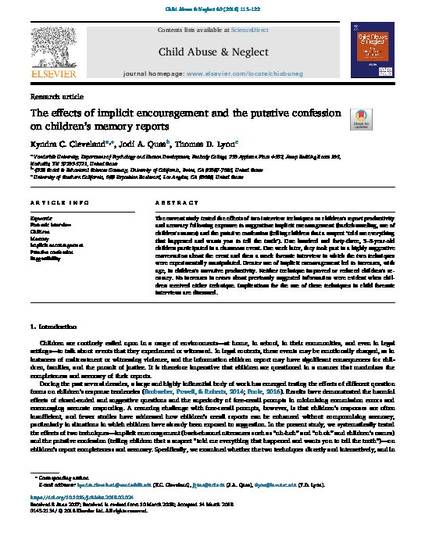
Article
62. The Effects of implicit encouragement and the putative confession on children’s memory reports.
Child Abuse & Neglect
(2018)
Abstract
The current study tested the effects of two interview techniques on children's report productivity and accuracy following exposure to suggestion: implicit encouragement (backchanneling, use of children's names) and the putative confession (telling children that a suspect "told me everything that happened and wants you to tell the truth"). One hundred and forty-three, 3-8-year-old children participated in a classroom event. One week later, they took part in a highly suggestive conversation about the event and then a mock forensic interview in which the two techniques were experimentally manipulated. Greater use of implicit encouragement led to increases, with age, in children's narrative productivity. Neither technique improved or reduced children's accuracy. No increases in errors about previously suggested information were evident when children received either technique. Implications for the use of these techniques in child forensic interviews are discussed.
Keywords
- child abuse,
- child sexual abuse,
- child testimony,
- implicit encouragement,
- putative confession,
- suggestibility
Disciplines
Publication Date
March 19, 2018
Citation Information
Cleveland, K.C., Quas, J.A., & Lyon, T.D. (2018). The effects of implicit encouragement and the putative confession on children’s memory reports. Child Abuse & Neglect, 80, 113-122.
